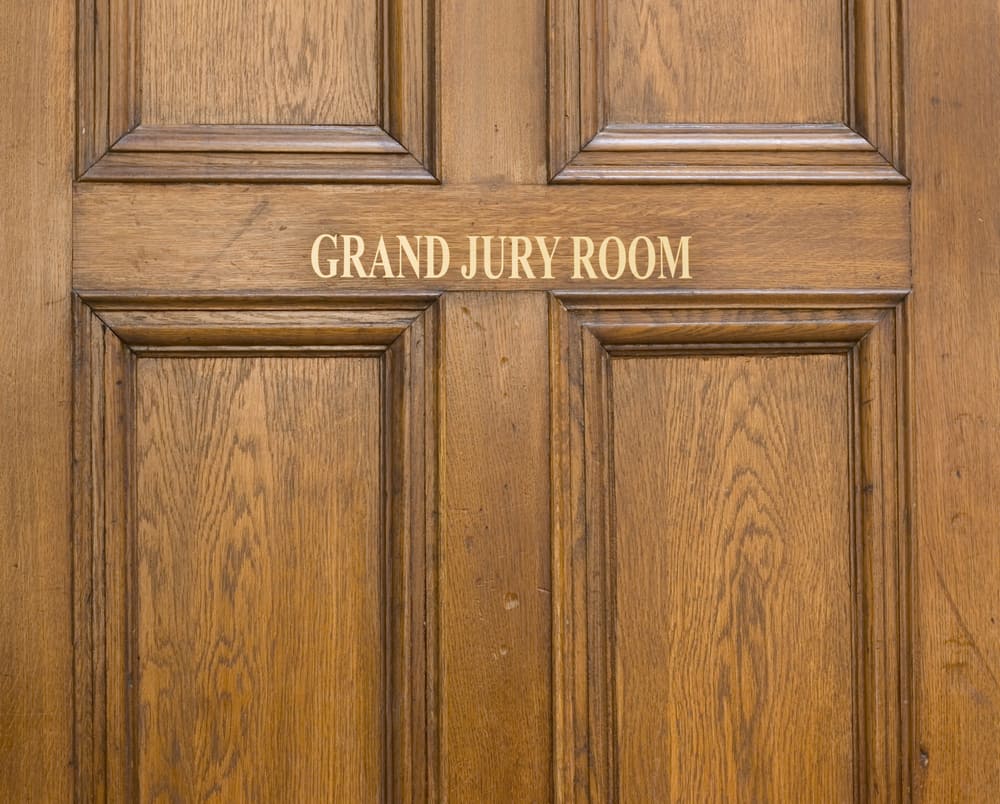In the state of Texas, a grand jury is comprised of 12 people who must determine whether probable cause exists for a felony offense. The grand jury is assembled to inquire into a felony offense or a relatively small number of misdemeanor offenses.
According to Title 1, Chapter 19, Article 19.40 of the Texas Code of Criminal Procedure, a quorum of nine jurors must be established to carry out the function of the grand jury. Each juror casts an individual vote. If the grand jury discerns there is probable cause of an offense occurrence, it returns a True Bill to indict.
If the prosecution can’t get the required nine juror votes, the case is No Billed. At that point, the prosecutor can’t pursue criminal charges against the defendant. When a case is No Billed, the defendant may be eligible for expungement or sealing of records relating to the investigation and arrest.
How the Grand Jury Works
A grand jury is considered a secret process. Both presentations of evidence and juror voting occur behind closed doors. Evidence presentation may include recitation of the factors by the prosecution, from witness testimony, or exhibits presented for the jury’s consideration. The prosecution may elect to recommend a True Bill, No Bill, or recommend nothing at all.
Like the deliberations of a traditional jury, a grand jury deliberates in secret. The prosecution and witnesses aren’t in the grand jury room when members make deliberations. Breaking a grand jury’s secrecy is a crime that’s punishable by a maximum 30-day jail sentence and a $500 fine.
A grand jury works in a non-adversarial process. In other words, the defense attorney and defendant aren’t present in the room in which the grand jurors deliberate. However, there are instances in which a knowledgeable criminal defense attorney may be allowed to present to the grand jury. If you are charged with a felony and under investigation, it is imperative to speak with a criminal defense attorney who is experienced in the matter of presentation to a grand jury. An effective criminal defense presentation can sometimes mean the difference in a True Bill or No Bill outcome.
If members of the grand jury don’t return an indictment when there were insufficient votes to indict, a No Bill result occurs. Typically, a No Bill means that criminal prosecution of the case will cease. However, a No Bill doesn’t prevent the prosecution from representing the case.
When a Grand Jury Applies
If you or a loved one receives a letter notifying you of the assembly of the grand jury on a specific date in Houston, Harris County, or any jurisdiction in Texas, it means the Office of the District Attorney is acting to indict for a felony. This is a legal emergency. You must retain criminal defense counsel immediately.
A grand jury is comprised of citizens who are appointed by a district judge to meet and review about sufficient evidence in a criminal matter. The grand jury deliberates to determine whether it will issue a True Bill of indictment for a felony offense. You don’t have the legal right to be present when the grand jury assembles. Although you or a loved one doesn’t have many legal rights when it comes to the grand jury proceeding, you must consider legal strategy at this point.
A grand jury is assembled to investigate any matter that’s initiated by the court, district attorney, its own members, or any credible person. In some situations, you may be called to testify before the grand jury. You need aggressive and experienced criminal defense representation if you’re asked to testify before a grand jury.
What a Grand Jury Does
A grand jury is granted powers to investigate a possible felony crime. The grand jury body may issue summons to witnesses by subpoena. This process enables grand jurors’ ability to examine a witness under oath.
The grand jury is granted powers to vote. In this process, the grand jury may determine whether it is in the people’s interest to pursue an indictment. It will present the vote result to the Court. In the state of Texas, a total of nine votes is necessary for an indictment. In other words, a unanimous vote from all 12 members of the grand jury isn’t needed. Article 19.40 says that nine members of the grand jury constitute a quorum.
The strongest power of the grand jury regards its ability to listen to the facts of any case and to conclude whether probable cause exists. If members of the grand jury vote to indict, it issues a True Bill on the case. If nine grand jury members don’t vote in favor of a True Bill, the matter is No Billed. If the defendant’s case receives a True Bill, the grand fury sends the case to the prosecutor who will seek to develop or resolve the case.
Under Article 20.011, the following persons may be present in the grand jury room while it conducts proceedings:
- Members of the grand jury
- Court bailiffs
- Attorney(s) representing the people of Texas
- Witness under examination or, when required, to provide assistance to the State’s attorney(s) in the examination of other witnesses or during the presentation of evidence to grand jurors
- If necessary, interpreters may be present to facilitate communications
- Under Article 20.012, a court stenographer or other individual operating a recording device may be present
If a grand jury is convened to consider the evidence against you in a criminal matter, you aren’t allowed to contest. If you’re indicted for a criminal offense, you aren’t entitled under the Constitution to argue the grand jury’s probable cause finding.
In Kaley v. United States, a defendant challenged the legality of a pretrial order to freeze assets by challenging the grand jury’s True Bill result. The Supreme Court determined that the defendant wasn’t entitled to contest the grand jury’s determination.
If you or someone close to you has been arrested, or if you’re under investigation for a felony in Texas, it is crucial to engage experienced criminal defense representation. You need an aggressive defense to do everything legally possible now to avoid a True Bill result and an indictment. An experienced criminal defense attorney understands how the grand jury works. The Law Office of Matthew D. Sharp will initiate a defense investigation right away. Mitigating and exculpatory evidence will be gathered and prepared to present to members of the grand jury. Mr. Sharp is a knowledgeable and experienced criminal defense attorney who will use investigators, forensic accountants, and other experts to defend your rights at the grand jury level.






